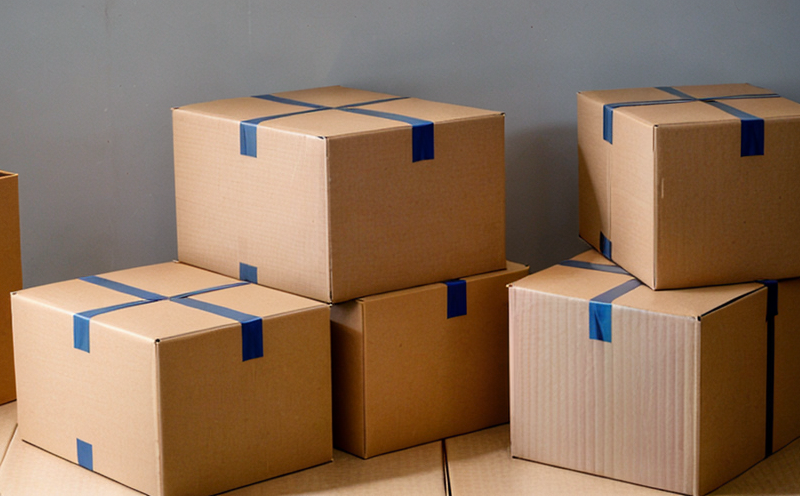EN 16297 NIAS Profiling in Food Contact Plastics
The European standard EN 16297 outlines a method known as "Non-Invasive Analytical Spectroscopy (NIAS)" profiling, which is designed to assess the migration of substances from food contact plastics into foodstuffs. This test is particularly crucial for ensuring that materials used in packaging do not release harmful or unwanted compounds during their intended use.
Food safety is paramount, and the European Commission has set strict requirements for all materials coming into direct contact with food products. These include packaging, containers, and any other components that may come into physical contact with foodstuffs. The aim of EN 16297 testing is to ensure compliance with these regulations by providing detailed information on potential migration risks.
The test involves the use of NIAS technology, which allows for non-destructive analysis of the surface and near-surface layers of materials without altering their physical properties. This method provides a comprehensive profile of the chemical composition of the material in question, enabling accurate identification of any potentially harmful substances that could migrate into food.
EN 16297 testing is essential for manufacturers who wish to ensure they meet stringent EU regulations on food safety and quality. By using this standard, companies can demonstrate their commitment to producing safe and reliable food packaging solutions. The results of the test provide valuable insights into the behavior of materials under various conditions, helping firms make informed decisions about product design and formulation.
One key aspect of EN 16297 is its ability to predict long-term performance by simulating real-world scenarios through accelerated aging processes. This allows manufacturers to assess how their products will perform over extended periods, ensuring consistent quality throughout the lifecycle of a product.
In addition to predicting long-term performance, NIAS profiling offers several other benefits for food contact plastics testing:
- It provides detailed information on the chemical composition of materials.
- It helps identify potential migration risks early in the development process.
- It supports regulatory compliance by meeting strict EU standards.
- It enhances product safety by ensuring that all components are free from harmful substances.
The industry applications of EN 16297 are numerous, and it plays a critical role in ensuring the safety and quality of food contact plastics across various sectors. From manufacturers to retailers, this test is essential for maintaining high standards of hygiene and safety within the supply chain.
| Industry | Application |
|---|---|
| Packaging | Evaluating the safety of food packaging materials. |
| Plastics | Determining the chemical makeup and potential risks associated with plastics used in food contact applications. |
| Retail | Ensuring that packaging meets regulatory requirements and enhances consumer confidence. |
| Manufacturing | Identifying potential issues early in the product development cycle to avoid costly recalls or non-compliance fines. |
Industry Applications
- Packaging: Evaluating the safety of food packaging materials.
- Plastics: Determining the chemical makeup and potential risks associated with plastics used in food contact applications.
- Retail: Ensuring that packaging meets regulatory requirements and enhances consumer confidence.
- Manufacturing: Identifying potential issues early in the product development cycle to avoid costly recalls or non-compliance fines.
Eurolab Advantages
At Eurolab, we offer a comprehensive range of services tailored specifically towards meeting the needs of our clients in the food and feed sectors. Our expertise lies in providing accurate, reliable results that ensure compliance with relevant standards such as EN 16297.
We have state-of-the-art facilities equipped with advanced analytical equipment capable of performing NIAS profiling efficiently and effectively. Our team comprises highly skilled professionals who possess extensive knowledge and experience in food safety testing.
Our commitment to excellence ensures that every test conducted by Eurolab meets the highest quality standards. With us, you can trust that your results will be accurate, consistent, and compliant with international regulations.
Why Choose This Test
Selecting EN 16297 NIAS Profiling for food contact plastics testing offers numerous advantages over other methods. One major benefit is the non-destructive nature of the test, which allows for repeated analyses without compromising the integrity of the sample.
This makes it ideal for ongoing quality control and assurance programs. Additionally, the detailed profiles provided by NIAS profiling offer valuable insights into material behavior under various conditions, enabling manufacturers to make informed decisions about product design and formulation.
The test also supports regulatory compliance by meeting strict EU standards. By ensuring that all components are free from harmful substances, EN 16297 helps enhance the safety of food packaging solutions. This is especially important given today’s stringent regulations on food contact materials.
Finally, NIAS profiling enhances product safety and consumer confidence through consistent quality assurance practices. With accurate and reliable results provided by Eurolab, you can rest assured that your products are meeting the highest standards of hygiene and safety within the supply chain.





